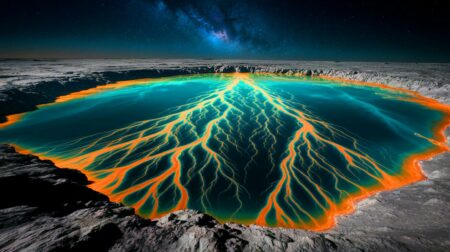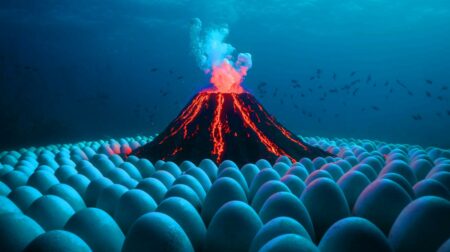Plastic waste has inundated the planet’s oceans where they wreak havoc with marine life. Even tiny microplastics can kill giant whales by accumulating in their guts and preventing them from digesting food.
Meanwhile, untold numbers of marine creatures from fish to seabirds and from turtles to seals perish by mistakenly ingesting large quantities of plastic rubbish or else getting hopelessly entangled in larger pieces of plastic like discarded fishing nets and six-pack holders.
But the harmful effects of plastics in the oceans can have other unintended consequences. They can even influence the behavior of animals like sea snails.
A scientist at the French National Centre for Scientific Research has found that leachates from plastic pellets can cause gastropods like common periwinkles (Littorina littorea) to change their behavior and not to their advantage either. Under normal circumstance the small snails withdraw into their shells when they sense chemicals wafting their way in the water from predatorial crabs.
Yet water is saturated with tiny plastic pellets, the shellfish failed to pick up these vital chemical cues. In other words, they become more vulnerable to predation, which could have an impact on their chances of survival.
“Leachates from virgin and beached pellets respectively impaired and inhibited L. littorea vigilance and antipredator behaviours,” writes Prof. Laurent Seuront, who has published a study on his findings. “These results suggest that the biological effects from microplastic leachates may have major implications for marine ecosystems on taxa that rely on chemosensory cues to escape predation.”
Plastic products contain a variety of toxic chemicals, including additives. The effects of these toxins on marine environment remain little understood.
It gets worse. Seawater contains a range of other chemicals that leached into it from human products and activities. Seuront collected water samples near beaches on the English Channel and found that they were “loaded with pretty much every chemical that can get absorbed on their surface.”
The samples included traces of pesticides, heavy metal and hydrocarbons. Yet it’s plastics that may pose the gravest threat in this regard, considering the vast amounts of them that are sloshing around in the world’s oceans.
Did you like it? 4.6/5 (29)








